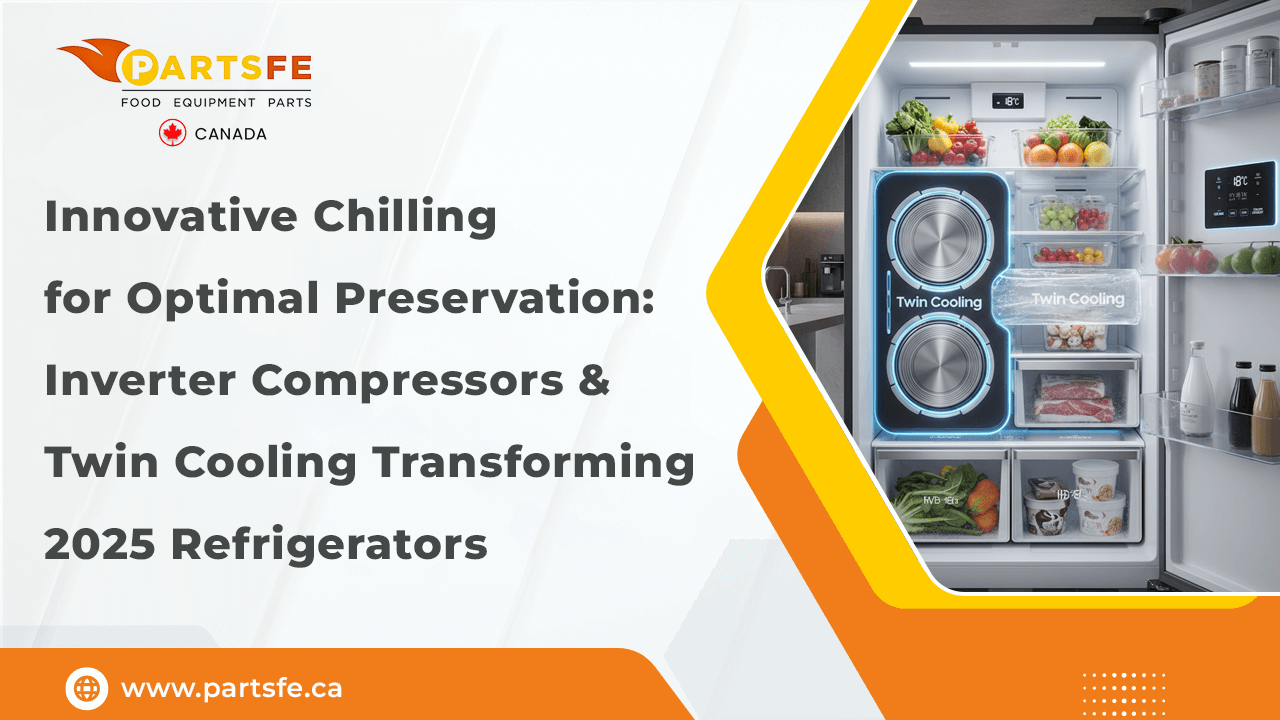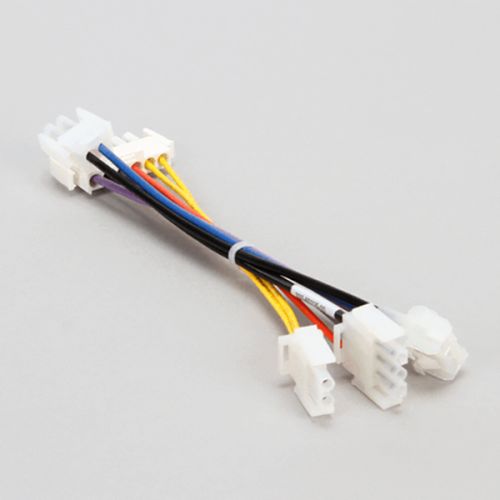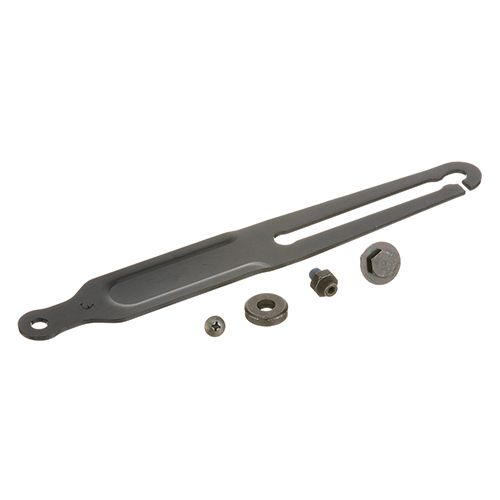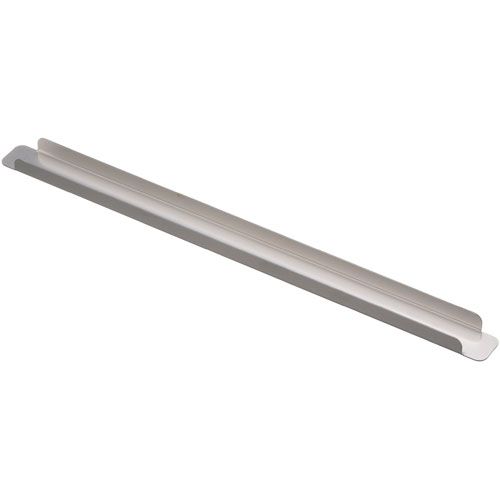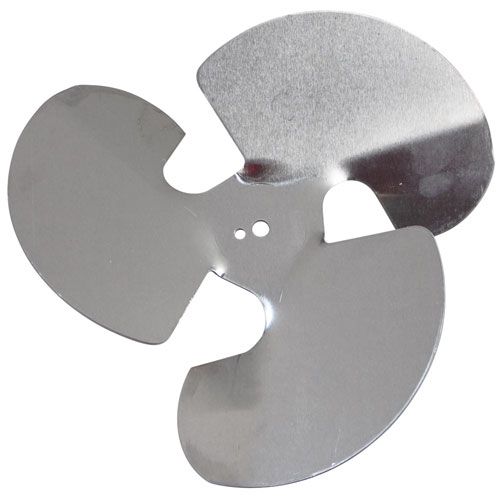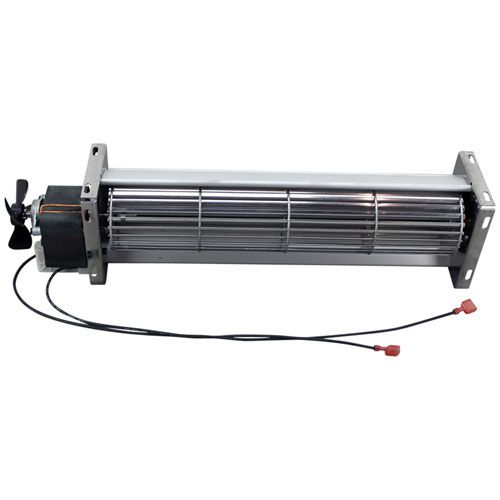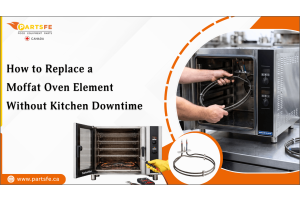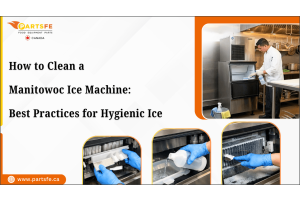Innovative Chilling for Optimal Preservation: Inverter Compressors & Twin Cooling Transforming 2025 Refrigerators
In 2025, refrigeration technology is advancing rapidly, introducing new methods to improve both energy efficiency and food preservation. Central to this progress are inverter compressors and twin cooling systems, which enhance how refrigerators control temperature and humidity. Inverter compressors vary their speed based on cooling needs, leading to quieter performance and lower energy use. At the same time, twin cooling systems operate separate cooling units for the refrigerator and freezer compartments, stopping odor mixing and maintaining optimal humidity for different foods. These advancements help keep food fresher for longer while also reducing energy consumption and environmental impact. Consequently, modern refrigerators are becoming smarter, more eco-friendly, and more effective at maintaining food quality.
The Role of Inverter Compressors and Twin Cooling in Commercial Refrigeration
Inverter compressors and twin cooling systems are transforming commercial refrigeration by addressing critical needs like energy efficiency, precise temperature control, and improved food preservation. Here’s a breakdown of how each technology contributes:
Inverter Compressors
-
Adaptive Motor Speed: Continuously adjusts compressor speed to match actual cooling requirements, enhancing responsiveness to fluctuating demands.
-
Minimized Temperature Fluctuations: Provides smooth operation that avoids the temperature swings typical in traditional compressor on/off cycles, ensuring more stable internal conditions.
-
Lower Power Usage During Light Loads: Reduces energy consumption by scaling down during periods of low cooling demand, making it ideal for commercial kitchens with variable usage patterns.
-
Reduced Mechanical Stress: The gradual speed changes lessen wear on compressor components, leading to longer equipment lifespan and fewer repairs.
-
Faster Recovery After Door Openings: Quickly increases cooling capacity when warm air enters, minimizing temperature rise and preserving food quality.
Twin Cooling Systems
-
Independent Cooling Circuits: Employs separate evaporators and airflow systems for fridge and freezer sections, enabling customized environmental control.
-
Optimal Humidity Control: Maintains appropriate moisture levels in the refrigerator compartment, preventing produce from drying out or wilting.
-
Prevention of Cross-Contamination: Stops odors and flavors from mixing between compartments, preserving the integrity of stored foods.
-
Energy Savings through Targeted Cooling: Allows each compartment to run only as much as needed, avoiding unnecessary cooling of one section when the other demands more.
-
Improved Food Longevity: Tailored environments extend shelf life by providing ideal conditions specific to the food type in each compartment.
How Inverter Compressors and Twin Cooling Improve Food Preservation in Commercial Refrigeration
In commercial refrigeration, preserving food quality requires precise, consistent cooling and controlled environments tailored to different types of perishables. Inverter compressors and twin cooling systems play a crucial role in achieving these outcomes.
Here’s how these technologies enhance food preservation:
Consistent Temperature Control
-
Continuously adjusts compressor speed to maintain steady temperatures.
-
Prevents sudden temperature fluctuations that can accelerate spoilage.
-
Ensures uniform cooling throughout the storage space for all items.
Customized Cooling Zones
-
Independent cooling for fridge and freezer compartments.
-
Allows precise control of temperature and humidity for different food types.
-
Supports optimal storage conditions for delicate items like leafy greens and frozen seafood.
Reduced Cross-Contamination
-
Separate air circulation prevents mixing of odors and moisture.
-
Limits the transfer of bacteria and allergens between compartments.
-
Preserves the natural flavors and safety of stored foods.
Faster Cooling After Stocking
-
Quickly restores temperature after door openings or adding warm items.
-
Minimizes the time food spends in unsafe temperature ranges.
-
Protects food from bacterial growth and quality degradation.
Moisture Retention for Produce
-
Maintains ideal humidity levels in the refrigerator section.
-
Keeps fruits and vegetables fresh, crisp, and hydrated longer.
-
Reduces waste by preventing premature wilting or drying out.
Inverter compressors and twin cooling systems ensure consistent food quality and longer shelf life. They also help commercial refrigerators save energy while meeting safety standards.
Key Benefits of Inverter Compressors and Twin Cooling in Commercial Refrigeration
Inverter compressors and twin cooling technologies bring advanced capabilities to commercial refrigeration, enhancing efficiency, reliability, and food safety. These benefits include both current practical advantages and emerging innovations expected in modern commercial setups:
-
Intelligent Demand Forecasting: Modern inverter compressors use smart controls to analyze past usage patterns and predict peak cooling demands, optimizing energy consumption during busy periods and reducing unnecessary power use.
-
Multi-Zone Environmental Customization: Twin cooling systems create separate cooling zones within one unit, allowing businesses to tailor temperature and humidity precisely for different types of products, ensuring optimal storage conditions.
-
Remote Diagnostics & Predictive Maintenance: Integrated IoT sensors enable continuous monitoring of refrigeration systems, alerting operators to potential issues before failures occur. This reduces downtime and maintenance costs, critical in commercial environments.
-
Energy Harvesting from Compressor Operation: Some advanced systems capture waste heat generated during compressor cycles, repurposing it to improve overall energy efficiency, such as heating water or warming adjacent spaces.
-
Automated Door Usage Adaptation: Refrigerators equipped with sensors can detect how often doors are opened and adjust cooling power dynamically, saving energy in high-traffic commercial kitchens without compromising performance.
-
Enhanced Inventory Traceability: By combining smart refrigeration with inventory management systems, businesses can monitor storage conditions for specific batches, supporting quality control and regulatory compliance.
-
Modular Expansion for Business Growth: Inverter compressor systems are designed to scale, allowing commercial operations to add cooling capacity easily as their needs evolve without replacing entire units.
-
Improved Sustainability Metrics: The integration of energy-efficient components and smart controls helps businesses meet green building certifications and reduce their environmental footprint, supporting sustainability goals.
These benefits showcase how inverter compressors and twin cooling are not just improving cooling but transforming commercial refrigeration into smarter, more adaptable systems suited for the evolving demands of 2025 and beyond.
Check out this article on essential tips for cleaning commercial refrigerator condenser coils to ensure optimal efficiency and extend the lifespan of your equipment.
Common Myths About Inverter Compressors and Twin Cooling
Myth 1: Inverter Compressors Are Costlier to Fix
Reality: Although inverter compressors use more advanced components, they typically experience less wear and tear due to smoother, variable-speed operation. As a result, they often require fewer repairs over time compared to traditional models.
Myth 2: Twin Cooling Systems Consume More Power
Reality: Twin cooling is designed to improve efficiency by managing compartments independently. When combined with inverter technology, it ensures that energy is used more precisely, not wasted, making the overall system more efficient, not less.
Practical Ways to Boost Energy Efficiency in Inverter Refrigerators
Improving energy efficiency in inverter refrigerators not only saves money but also extends the appliance’s lifespan. Here are some effective strategies to maximize performance and reduce power consumption:
-
Set Optimal Temperature: Keep refrigerator temperature between 3–5°C and freezer between –18 to –20°C for ideal cooling without overworking the compressor.
-
Avoid Frequent Door Openings: Each time the door opens, cold air escapes, and the compressor works harder to restore the temperature.
-
Proper Food Arrangement: Allow air circulation inside by not overcrowding; organized storage lets cool air flow efficiently.
-
Regular Maintenance: Clean condenser coils and door seals to prevent energy loss caused by dust buildup or leaks.
-
Use Energy-Saving Mode: Many inverter refrigerators come with eco modes that activate to reduce energy consumption during low-use periods.
-
Keep Away from Heat Sources: Position your refrigerator away from direct sunlight or ovens to prevent extra strain on the compressor.
-
Defrost Timely: For models without automatic defrost, removing frost buildup ensures the compressor runs smoothly.
By adopting these practical habits, users can maximize the benefits of inverter technology, lowering electricity bills and enhancing refrigerator efficiency. These steps contribute to a greener, cost-effective cooling experience.
Check out this article on restaurant equipment trends to watch for in the foodservice industry to discover the latest innovations shaping modern kitchen operations.
Final Thoughts
Inverter compressors combined with twin cooling technology are transforming refrigerators in 2025 by enhancing energy efficiency and maintaining food freshness. These innovations offer precise temperature control, reduced power consumption, and help maintain food freshness for extended periods. As refrigeration technology advances, these intelligent and environmentally friendly systems offer dependable, customizable solutions that cater to the needs of both businesses and consumers, supporting a more sustainable and efficient future.
Looking for top-quality refrigerator parts? PartsFeCA offers essential components from leading brands like Manitowoc, Scotsman, and Hoshizaki. From door gaskets to defrost heaters and water filters, find everything you need to keep your refrigerators working efficiently.
FAQs
How does twin cooling help preserve food better?
It prevents odor transfer between compartments and maintains ideal humidity, keeping food fresher for longer.
Why is consistent temperature important for food preservation?
Stable temperatures prevent spoilage and maintain food quality by avoiding fluctuations that can damage perishables.
How do inverter compressors reduce noise in refrigerators?
By varying their speed smoothly rather than cycling on and off, inverter compressors operate quietly with less vibration.
What benefits does twin cooling offer for energy savings?
It cools each compartment independently, using energy only where needed, which enhances overall efficiency.

